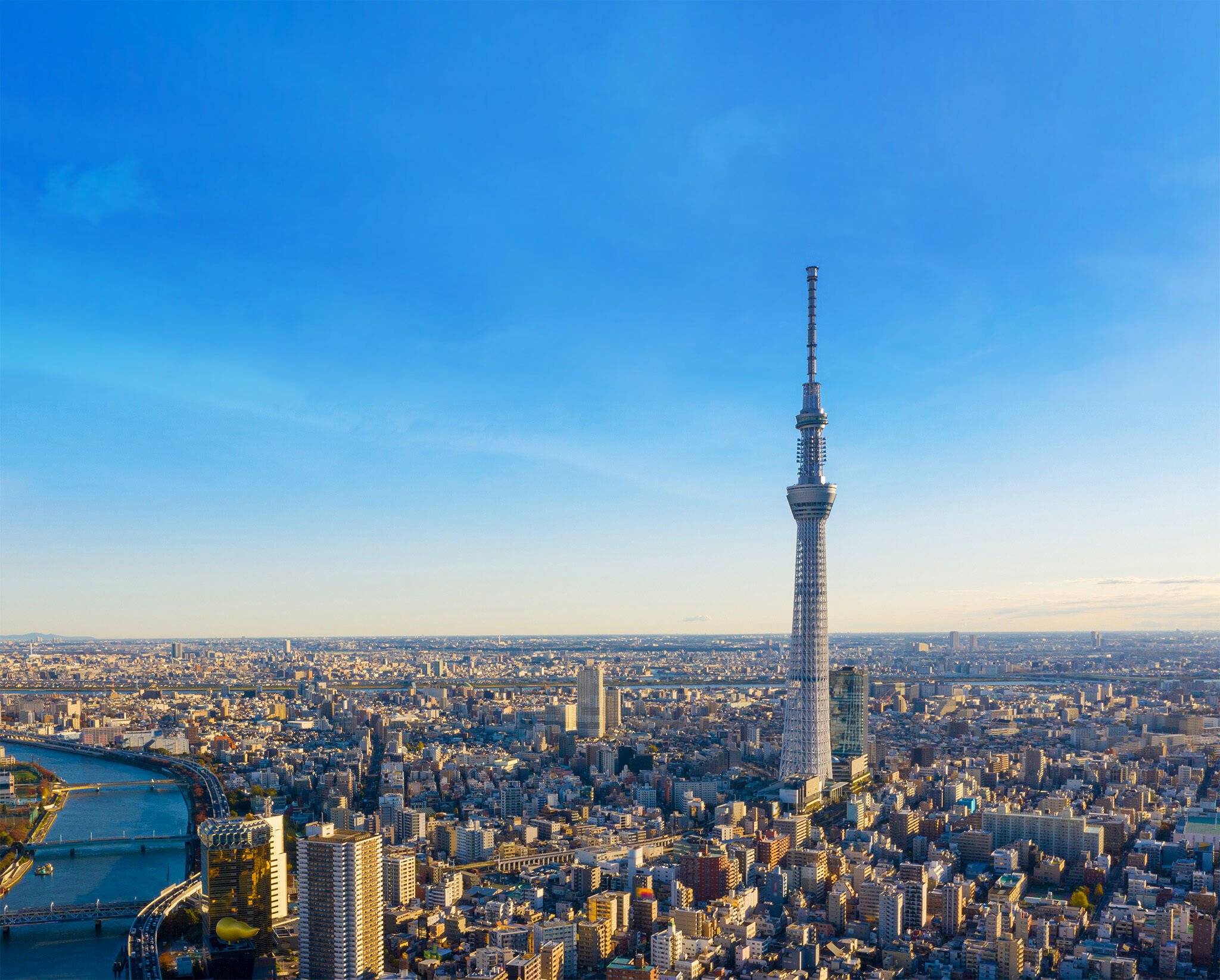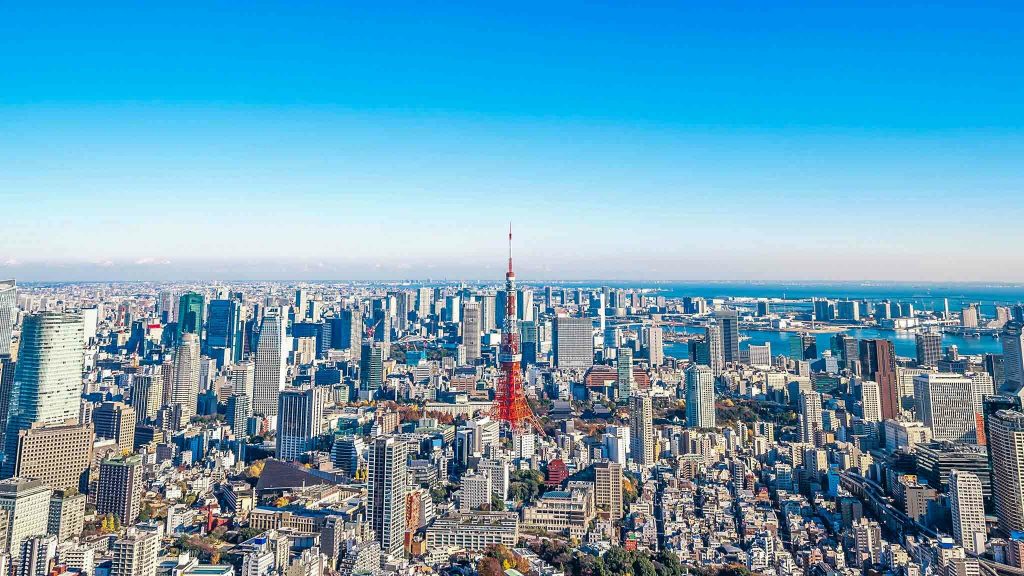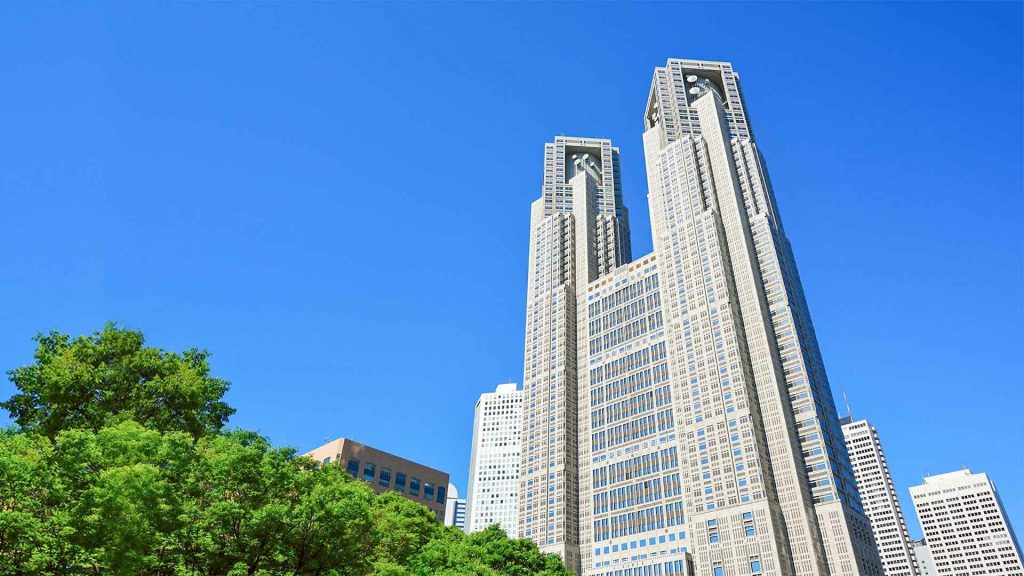
The Legacy of Tokyo 2020
Tokyo builds on past success to become a
In July 2022, Tokyo became the first city from Asia to top the global rankings for sports city of the year, an achievement that came only a year after the city hosted the Olympic and Paralympic Games Tokyo 2020.
Tokyo’s rise to international sporting prominence coincided with one-year anniversary celebrations of Tokyo 2020. During the event, in contrast to the Tokyo 2020 Games, a parade of athletes and volunteers as well as spectators—including children—gathered to engage in the celebrations. Japan’s capital not only celebrated sporting excellence under unprecedented circumstances in 2021; Tokyo set a high bar for secure and sustainable global sporting events, while sharing touching moments and memories.

The Tokyo Metropolitan Government (TMG), the host city of the Games, deployed various initiatives including infrastructure enhancement, ensured accessibility and solid security measures, and has been working on making use of these post-Games legacies.
In January 2022, under the “Tokyo Sports Legacy Vision,” the TMG laid out a bold strategy for the future—namely, to make efficient use of legacy facilities from the Games, and to increase the adoption of sports in the city, regardless of gender, age or ability.
In addition, the TMG aims to promote volunteerism—the backbone of Tokyo 2020—and cement a legacy for Japan’s capital not only as a destination for sports, but also as an example of harmonious collaboration.
Making Use Of Legacy Venues
To ensure a sustainable post-Games future, legacy facilities—such as stadiums, venues and other infrastructure—that were built for, and used during Tokyo 2020 continue to be utilized effectively.
The Japan National Stadium, which hosted the opening and closing ceremonies of Tokyo 2020 and became a centerpiece of the Games, will once again become the focus of the world’s attention when it hosts the 2025 World Athletics Championships, further enhancing the city’s reputation as a destination for top level sports events.

Copyright: Japan Sport Council
Meanwhile, the TMG, which built six permanent facilities for the Tokyo 2020 Games including the Ariake Arena and the Canoe Slalom Centre, has plans to attract a variety of activities in each of them including international competitions, as well as cultural and entertainment events as part of its post-Games strategy.
For example, Sea Forest Waterway, a facility used as a venue for canoeing and rowing competitions at the Tokyo 2020 Games, will host international water sports competitions and other events such as the triathlon, and make use of its expansive water and land areas for large-scale events such as recreation and outdoor music concerts.
Adoption Of Sports By All
Tokyo 2020, which was held under a vision of diversity and inclusion, was the most gender-balanced Games in the history of the Olympics. Indeed, 48% of participants in the tournament were women, the highest ratio on record.
Diversity at Tokyo 2020 was also seen in the variety of sports represented. A number of urban sports debuted at the Games such as skateboarding, cycling-BMX freestyle and 3×3 basketball, as did karate, a traditional activity.
Based on the strategy of the “Tokyo Sports Legacy Vision” the TMG continues to highlight diversity and includes efforts to encourage the adoption of sports activities—whether traditional or modern—by all members of society.

For Tokyo, the inclusion of urban sports that appeal to youth became a catalyst for the uptick in sports enthusiasm, with their inclusion partly responsible for the sports participation rate for Tokyo’s residents rising from 53.9% in 2012 to 68.9% in 2021.
Tokyo 2020, it seems, helped to create a culture in the city of not only watching, but also supporting and participating in sports. So it comes as no surprise that the city is rolling out campaigns to promote engagement—such as “Tokyo Parasports Month” and the “Tokyo Legacy Half Marathon 2022”—for people of all ages and abilities.
In the period leading up to the Tokyo 2020 Games, Olympic and Paralympic education was conducted at 2,300 public schools across Tokyo. This education program focused on five qualities children should strive to acquire, including a volunteer mindset, an understanding of people with impairments, and a rich international outlook, with the aim of creating a mutually supportive society. As part of this education, the TMG has provided para sports experiences and exchanges with Olympians and Paralympians. The TMG will continue these efforts toward a collaborative society as part of their legacy.

Also, the TMG organized a skateboarding experience event at the Ariake Urban Sports Park—a venue that was used for skateboarding events at the Games—where athletes promoted urban sports and interacted with children, allowing them to experience skateboarding, instilling them with a legacy mindset. In the future, this venue will be utilized and developed into a facility where visitors can enjoy urban sports.
Furthermore, in August 2022, the Ariake Arena held an event to commemorate the anniversary of the Paralympic Games. The aim of the event was to increase interest in the para sports movement through an opening ceremony for the facility and a wheelchair basketball exhibition match.
The promotion of para sports is a source of pride for Tokyo, the first city to host two Paralympic Summer Games, and that will also host the Deaflympics in 2025. On the occasion of the One Year Anniversary celebrations the President of the International Paralympic Committee Andrew Parsons said:
“Japan as a nation, they were really proud of not only delivering the Games but offering to 1.2 billion people with impairments worldwide that amazing platform to send their message of inclusion to the world.”
– Andrew Parsons, President of the International Paralympic Committee
Tokyo As A Home Of Volunteering
By the time Tokyo 2020 began, approximately 240,000 people had applied to volunteer, and some 83,000 eventually did. And the vast majority of the volunteers operated by the TMG—96%, by some estimates—said they would volunteer again following their experience at the Games.
“Volunteers at sporting events not only get energy from the athletes, but can also be proud of what they are doing. Many people worked hard to support the Games, and thanks to them, the event was successful. I would like to continue to volunteer if the opportunity arises.”
– Yanagi Miyuki, volunteer, the Olympic and Paralympic Games Tokyo 2020, and One Year Anniversary celebrations
While ensuring the sustainable use of Games-related sports facilities and increasing the appreciation and participation of sports by all, the TMG is also keen to promote and embed a culture of volunteering across the city.
The TMG shares information about upcoming activities and initiatives through online platforms like the “Tokyo Volunteer Legacy Network” and “Tokyo Para Sports & Support,” to create further opportunities for people to volunteer at Tokyo 2020-related legacy events and more.


Beyond Tokyo 2020
After the successful conclusion of the Games, supported by the Olympic and Paralympic spirit, Tokyo is now looking to the future, hoping to ride the wave of success and build on its reputation as a leading international business city. The Tokyo 2020 Games made Tokyo a sustainable city with barrier-free accommodation and transportation, multilingual support, and environmental friendliness, and it is ready to open its arms to all people regardless of nationality or impairment. Tokyo, matured by the legacy of the Games, aims to attract new business as it continues to evolve as an international sports and business destination.
As Governor of Tokyo, Koike Yuriko, noted at the Tokyo 2020 One Year Anniversary celebrations,
“Today, we are joined by athletes, volunteers, torchbearers, children from the areas affected by the earthquake and tsunami, and children of Tokyo. It is an emotional moment, and together, we shall celebrate the one year anniversary and create a big excitement. Through a tournament that has left behind many legacies, Tokyo is standing on a new starting line. Let us come together under the concept ‘Tokyo Forward’ to create a new future.”











